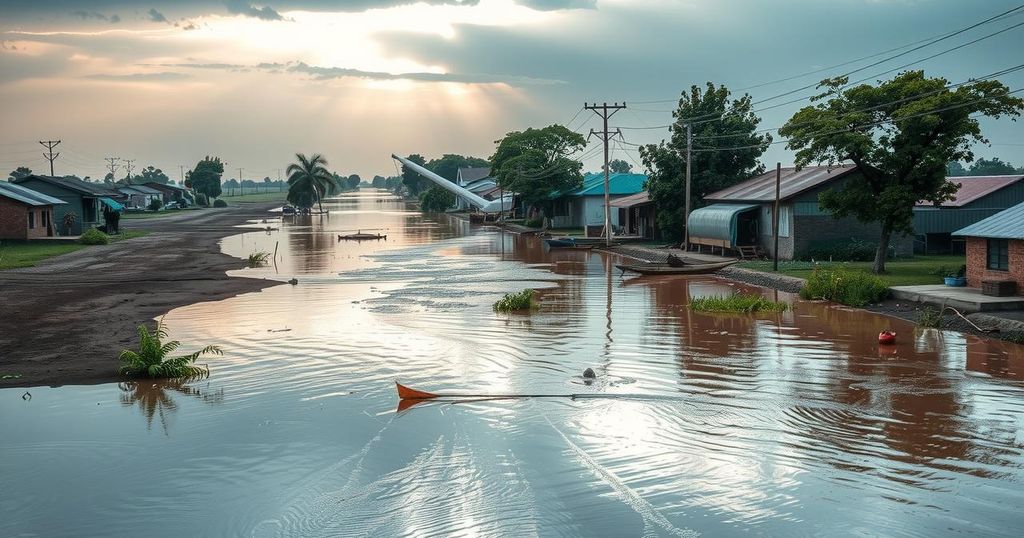Annual Flooding Crisis Displaces Thousands in South Sudan
Flooding in South Sudan is increasingly becoming an annual disaster, forcing thousands to live on the edge of the Jonglei Canal. The expanding Sudd wetland submerges villages and farmland, presenting dangers such as poisonous snakes while complicating the journey to medical facilities for residents.
In South Sudan, the annual threat of flooding has intensified, resulting in a dire situation for tens of thousands of displaced individuals who now inhabit makeshift settlements along the Jonglei Canal’s higher grounds. While seasonal flooding has historically influenced the livelihoods of pastoral communities surrounding the Sudd, which is Africa’s largest wetland, the expanding swamp threatens to engulf more villages, devastate agricultural lands, and decimate livestock populations. For these vulnerable residents, accessing vital medical care presents a severe challenge, as they must navigate through treacherous waters that are often home to venomous snakes, wading for hours to reach the nearest clinic.
South Sudan faces a growing humanitarian crisis as flooding becomes more frequent and severe each year. The Jonglei Canal, vital for the local ecosystem and economy, has become a precarious refuge for displaced persons seeking relief from rising waters. The Sudd wetland, with its unique ecological features, has historically supported pastoral lifestyles, but increasing floodwaters are changing this dynamic, leading to significant threats to food security and health.
The annual floods in South Sudan not only disrupt the lives and livelihoods of local communities but also pose significant health risks and challenges in accessing essential services. As the situation escalates, it highlights the urgent need for attention and intervention to mitigate the effects of flooding and support affected populations.
Original Source: lufkindailynews.com




Post Comment